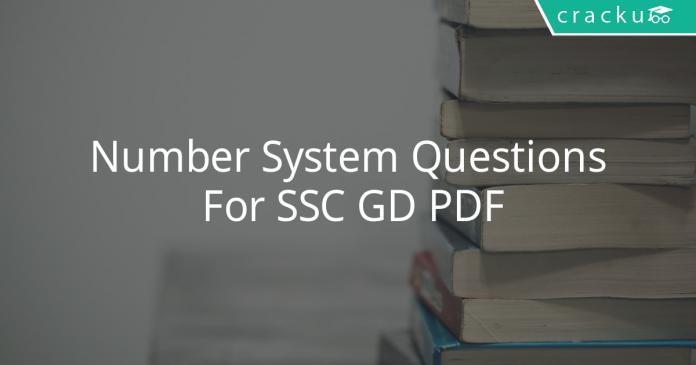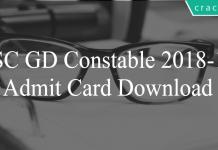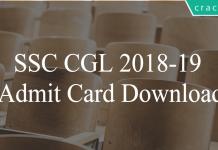Number System Questions For SSC GD PDF
SSC GD Constable Number System Question paper with answers download PDF based on SSC GD exam previous papers. 40 Very important Number System questions for GD Constable.
DOWNLOAD NUMBER SYSTEM QUESTIONS FOR SSC GD PDF
GET 20 SSC GD MOCK FOR JUST RS. 117
Download SSC GD Important Questions PDF
1500+ Must Solve Questions for SSC Exams (Question bank)
Question 1: If $x=\sqrt{7}-\sqrt{6}$, then find the value of $(\dfrac{1}{x^3}-x^3)$.
a) $44\sqrt{6}$
b) $50\sqrt{6}$
c) $54\sqrt{6}$
d) $58\sqrt{6}$
Question 2: If $x=\sqrt{8}-\sqrt{7}$, then find the value of $(\dfrac{1}{x^3}-x^3)$.
a) $56\sqrt{7}$
b) $46\sqrt{7}$
c) $62\sqrt{7}$
d) $66\sqrt{7}$
Question 3: If $x=\sqrt{6}-\sqrt{5}$, then find the value of $(\dfrac{1}{x^3}-x^3)$.
a) $46\sqrt{5}$
b) $40\sqrt{5}$
c) $56\sqrt{5}$
d) $50\sqrt{5}$
Question 4: If $x=\sqrt{10}-3$, then find the value of $(\dfrac{1}{x^3}-x^3)$.
a) 128
b) 234
c) 192
d) 196
Question 5: If $x=\sqrt{5}-2$, then find the value of $(\dfrac{1}{x^3}-x^3)$.
a) 22
b) 44
c) 66
d) 76
Download SSC GD FREE PREVIOUS PAPERS
Question 6: Find the square root of $39+12\sqrt{3}$.
a) $6+\sqrt{3}$
b) $4+\sqrt{3}$
c) $2+\sqrt{3}$
d) $3+\sqrt{3}$
Question 7: Find the square root of $27+10\sqrt{2}$.
a) $4+\sqrt{2}$
b) $2+\sqrt{2}$
c) $5+\sqrt{2}$
d) $3+\sqrt{2}$
Question 8: Find the square root of $16+6\sqrt{7}$.
a) $3+\sqrt{7}$
b) $4+\sqrt{7}$
c) $5+\sqrt{7}$
d) $1+\sqrt{7}$
Question 9: Find the square root of $9+4\sqrt{5}$.
a) $2+\sqrt{3}$
b) $3+\sqrt{5}$
c) $4+\sqrt{5}$
d) $2+\sqrt{5}$
Question 10: Find the square root of $19+8\sqrt{3}$.
a) $5+\sqrt{3}$
b) $4+\sqrt{3}$
c) $2+\sqrt{3}$
d) $3+\sqrt{3}$
DOWNLOAD APP TO ACESS DIRECTLY ON MOBILE
Question 11: Find the number of prime factors of 108900.
a) 4
b) 3
c) 5
d) 6
Question 12: Find the number of prime factors of 44100.
a) 4
b) 3
c) 5
d) 6
Question 13: Find the number of prime factors of 90090.
a) 4
b) 3
c) 5
d) 6
Question 14: Find the number of prime factors of 11550.
a) 4
b) 3
c) 5
d) 6
Question 15: Find the number of prime factors of 12400.
a) 4
b) 3
c) 5
d) 6
Download SSC GD Constable Syllabus PDF
Question 16: Find the number of odd factors of 9450.
a) 24
b) 27
c) 36
d) 18
Question 17: Find the number of even factors of 13440.
a) 56
b) 64
c) 44
d) 32
Question 18: Find the number of even factors of 3750.
a) 8
b) 16
c) 12
d) 10
Question 19: Find the number of odd factors of 2700.
a) 24
b) 16
c) 12
d) 8
Question 20: Find the number of even factors of 1800.
a) 24
b) 27
c) 36
d) 18
Question 21: Find the unit digit of $69^{175}$.
a) 1
b) 3
c) 9
d) 5
Question 22: Find the unit digit of $92^{613}$.
a) 4
b) 6
c) 8
d) 2
Question 23: Find the unit digit of $76^{12}$.
a) 2
b) 4
c) 8
d) 6
Question 24: Find the unit digit of $27^{42}$.
a) 7
b) 9
c) 1
d) 3
Question 25: Find the unit digit of $44^{17}$.
a) 4
b) 6
c) 8
d) 2
Question 26: The product of two numbers is 1083 and their HCF is 19. Then find their LCM
a) 63
b) 49
c) 57
d) 85
100+ Free GK Tests for SSC Exams
Question 27: What is the remainder obtained when $4^{128}$ is divided by 15 ?
a) 14
b) 1
c) 4
d) 8
Question 28: How many numbers less than 31 are co-prime to 31 ?
a) 30
b) 15
c) 29
d) 28
Question 29: The difference between a two-digit number and the number obtained by interchanging the digits is 27. What is the differences between the digits of the number ?
a) 3
b) 5
c) 6
d) Can’t be determined
Question 30: How many numbers between 400 and 800 are divisible by 4, 5 and 6 ?
a) 7
b) 8
c) 9
d) 10
Question 31: The sum of all natural numbers from 75 to 97 is:
a) 1598
b) 1978
c) 1798
d) 1958
Question 32: How many positive factors of 24 are there?
a) 3
b) 4
c) 6
d) 8
Question 33: The sum of three consecutive even numbers is always divisible by ____.
a) 12
b) 6
c) 18
d) 24
Question 34: $4^{11}+4^{12}+4^{13}+4^{14}\ $is divisible by_________.
a) 7
b) 14
c) 17
d) 9
Question 35: $\ 3^{11} + 3^{12} + 3^{13} + 3^{14}\ $ is divisible by _____.
a) 7
b) 8
c) 11
d) 14
Question 36: How many positive factors of 40 are there?
a) 3
b) 4
c) 6
d) 8
Question 37: How many positive factors of 36 are there?
a) 4
b) 6
c) 9
d) 12
Question 38: The smallest five digit number which is divisible by 12, 18 and 21 is:
a) 50321
b) 10224
c) 30256
d) 10080
Question 39: The number $142^{2}-1$ is divisible by
a) 19
b) 9
c) 13
d) 7
Question 40: The difference between the greatest and least prime numbers which are less than 100 is
a) 97
b) 94
c) 96
d) 95
Answers & Solutions:
1) Answer (C)
Given that, $x=\sqrt{7}-\sqrt{6}$.
$\Rightarrow$ $\dfrac{1}{x}=\dfrac{1}{\sqrt{7}-\sqrt{6}}$
$\Rightarrow$ $\dfrac{1}{x}=\dfrac{(\sqrt{7}+\sqrt{6})}{(\sqrt{7}-\sqrt{6})*(\sqrt{7}+\sqrt{6})}$
$\Rightarrow$ $\dfrac{1}{x}=\sqrt{7}+\sqrt{6}$ … (1)
We know that $(a-b)^3=a^3-b^3-3ab(a-b)$
$\Rightarrow$ $(x-\dfrac{1}{x})^3=x^3-\dfrac{1}{x^3}-3x*\dfrac{1}{x}(x-\dfrac{1}{x})$
$\Rightarrow$ $[(\sqrt{7}-\sqrt{6})-(\sqrt{7}-\sqrt{6})]^3=x^3-\dfrac{1}{x^3}-3[(\sqrt{7}-\sqrt{6})-(\sqrt{7}-\sqrt{6})]$
$\Rightarrow$ $[-2\sqrt{6}]^3=x^3-\dfrac{1}{x^3}-3[-2\sqrt{6}]$
$\Rightarrow$ $\dfrac{1}{x^3}-x^3=48\sqrt{6}+6\sqrt{6}=54\sqrt{6}$
Therefore, option C is the correct answer.
2) Answer (C)
Given that, $x=\sqrt{8}-\sqrt{7}$.
$\Rightarrow$ $\dfrac{1}{x}=\dfrac{1}{\sqrt{8}-\sqrt{7}}$
$\Rightarrow$ $\dfrac{1}{x}=\dfrac{(\sqrt{8}+\sqrt{7})}{(\sqrt{8}-\sqrt{7})*(\sqrt{8}+\sqrt{7})}$
$\Rightarrow$ $\dfrac{1}{x}=\sqrt{8}+\sqrt{7}$ … (1)
We know that $(a-b)^3=a^3-b^3-3ab(a-b)$
$\Rightarrow$ $(x-\dfrac{1}{x})^3=x^3-\dfrac{1}{x^3}-3x*\dfrac{1}{x}(x-\dfrac{1}{x})$
$\Rightarrow$ $[(\sqrt{8}-\sqrt{7})-(\sqrt{8}+\sqrt{7})]^3=x^3-\dfrac{1}{x^3}-3[(\sqrt{8}-\sqrt{7})-(\sqrt{8}+\sqrt{7})]$
$\Rightarrow$ $[-2\sqrt{7}]^3=x^3-\dfrac{1}{x^3}-3[-2\sqrt{7}]$
$\Rightarrow$ $\dfrac{1}{x^3}-x^3=56\sqrt{7}+6\sqrt{7}=62\sqrt{7}$
Therefore, option C is the correct answer.
3) Answer (A)
Given that, $x=\sqrt{6}-\sqrt{5}$.
$\Rightarrow$ $\dfrac{1}{x}=\dfrac{1}{\sqrt{6}-\sqrt{5}}$
$\Rightarrow$ $\dfrac{1}{x}=\dfrac{(\sqrt{6}+\sqrt{5})}{(\sqrt{6}-\sqrt{5})*(\sqrt{6}+\sqrt{5})}$
$\Rightarrow$ $\dfrac{1}{x}=\sqrt{6}+\sqrt{5}$ … (1)
We know that $(a-b)^3=a^3-b^3-3ab(a-b)$
$\Rightarrow$ $(x-\dfrac{1}{x})^3=x^3-\dfrac{1}{x^3}-3x*\dfrac{1}{x}(x-\dfrac{1}{x})$
$\Rightarrow$ $[(\sqrt{6}-\sqrt{5})-(\sqrt{6}+\sqrt{5})]^3=x^3-\dfrac{1}{x^3}-3[(\sqrt{6}-\sqrt{5})-(\sqrt{6}+\sqrt{5})]$
$\Rightarrow$ $[-2\sqrt{5}]^3=x^3-\dfrac{1}{x^3}-3[-2\sqrt{5}]$
$\Rightarrow$ $\dfrac{1}{x^3}-x^3=40\sqrt{5}+6\sqrt{5}=46\sqrt{5}$
Therefore, option A is the correct answer.
4) Answer (B)
Given that, $x=\sqrt{10}-3$.
$\Rightarrow$ $\dfrac{1}{x}=\dfrac{1}{\sqrt{10}-3}$
$\Rightarrow$ $\dfrac{1}{x}=\dfrac{(\sqrt{10}+3)}{(\sqrt{10}-3)*(\sqrt{10}+3)}$
$\Rightarrow$ $\dfrac{1}{x}=\sqrt{10}+3$ … (1)
We know that $(a-b)^3=a^3-b^3-3ab(a-b)$
$\Rightarrow$ $(x-\dfrac{1}{x})^3=x^3-\dfrac{1}{x^3}-3x*\dfrac{1}{x}(x-\dfrac{1}{x})$
$\Rightarrow$ $[(\sqrt{10}-3)-(\sqrt{10}+3)]^3=x^3-\dfrac{1}{x^3}-3[(\sqrt{10}-3)-(\sqrt{10}+3)]$
$\Rightarrow$ $[-6]^3=x^3-\dfrac{1}{x^3}-3[-6]$
$\Rightarrow$ $\dfrac{1}{x^3}-x^3=216+18=234$
Therefore, option B is the correct answer.
5) Answer (D)
Given that, $x=\sqrt{5}-2$.
$\Rightarrow$ $\dfrac{1}{x}=\dfrac{1}{\sqrt{5}-2}$
$\Rightarrow$ $\dfrac{1}{x}=\dfrac{(\sqrt{5}+2)}{(\sqrt{5}-2)*(\sqrt{5}+2)}$
$\Rightarrow$ $\dfrac{1}{x}=\sqrt{5}+2$ … (1)
We know that $(a-b)^3=a^3-b^3-3ab(a-b)$
$\Rightarrow$ $(x-\dfrac{1}{x})^3=x^3-\dfrac{1}{x^3}-3x*\dfrac{1}{x}(x-\dfrac{1}{x})$
$\Rightarrow$ $[(\sqrt{5}-2)-(\sqrt{5}+2)]^3=x^3-\dfrac{1}{x^3}-3[(\sqrt{5}-2)-(\sqrt{5}+2)]$
$\Rightarrow$ $[-4]^3=x^3-\dfrac{1}{x^3}-3[-4]$
$\Rightarrow$ $\dfrac{1}{x^3}-x^3=64+12 = 76$
Therefore, option D is the correct answer.
6) Answer (A)
We have to figure out the square root of $39+12\sqrt{3}$. Let us assume that (a+b) is the square root of the given number.
$(a+b)^2 = a^2+b^2+2ab$
Comparing this with the given number,
$a^2+b^2+2ab = 39+12\sqrt{3}$.
On comparing we get, $a^2+b^2=39$ $ab=6\sqrt{3}$
We can see that this is possible when $a = 6$ and $b = \sqrt{3}$. Therefore, we can say that the square root = $6+\sqrt{3}$. Hence, option A is the correct answer.
7) Answer (C)
We have to figure out the square root of $27+10\sqrt{2}$. Let us assume that (a+b) is the square root of the given number.
$(a+b)^2 = a^2+b^2+2ab$
Comparing this with the given number,
$a^2+b^2+2ab = 27+10\sqrt{2}$
On comparing we get, $a^2+b^2=27$ $ab=5\sqrt{2}$
We can see that this is possible when $a = 5$ and $b = \sqrt{2}$. Therefore, we can say that the square root = $5+\sqrt{2}$. Hence, option C is the correct answer.
8) Answer (A)
We have to figure out the square root of $16+6\sqrt{7}$. Let us assume that (a+b) is the square root of the given number.
$(a+b)^2 = a^2+b^2+2ab$
Comparing this with the given number,
$a^2+b^2+2ab = 16+6\sqrt{7}$
On comparing we get, $a^2+b^2=16$ $ab=3\sqrt{7}$
We can see that this is possible when $a = 3$ and $b = \sqrt{7}$. Therefore, we can say that the square root = $3+\sqrt{7}$. Hence, option A is the correct answer.
9) Answer (D)
We have to figure out the square root of $9+4\sqrt{5}$. Let us assume that (a+b) is the square root of the given number.
$(a+b)^2 = a^2+b^2+2ab$
Comparing this with the given number,
$a^2+b^2+2ab = 9+4\sqrt{5}$
On comparing we get, $a^2+b^2=9$ $ab=2\sqrt{5}$
We can see that this is possible when $a = 2$ and $b = \sqrt{5}$. Therefore, we can say that the square root = $2+\sqrt{5}$. Hence, option D is the correct answer.
10) Answer (C)
We have to figure out the square root of $19+8\sqrt{3}$. Let us assume that (a+b) is the square root of the given number.
$(a+b)^2 = a^2+b^2+2ab$
Comparing this with the given number,
$a^2+b^2+2ab = 19+8\sqrt{3}$
On comparing we get, $a^2+b^2=19$, $ab=4\sqrt{3}$
We can see that this is possible when $a = 4$ and $b = \sqrt{3}$. Therefore, we can say that the square root = $4+\sqrt{3}$. Hence, option C is the correct answer.
11) Answer (A)
We can factorize the number in form of prime factors.
$108900 = 2^2*3^2*5^2*11^2$
Therefore, the number of prime factors = 4. Hence, option A is the correct answer.
12) Answer (A)
We can factorize the number in form of prime factors.
$44100 = 2^2**3^2*5^2*7^2$
Therefore, the number of prime factors = 4. Hence, option A is the correct answer.
13) Answer (D)
We can factorize the number in form of prime factors. 21 x 32 x 51 x 71 x 111 x 131
$90090 = 2^1*3^2*5^1*7^1*11^1*13^1$
Therefore, the number of prime factors = 6. Hence, option D is the correct answer.
14) Answer (C)
We can factorize the number in form of prime factors.
$11550 = 2^1**3^1*5^2*7^1*11^1$
Therefore, the number of prime factors = 5. Hence, option C is the correct answer.
15) Answer (B)
We can factorize the number in form of prime factors.
$12400 = 2^4*5^2*31^1$
Therefore, the number of prime factors = 3. Hence, option B is the correct answer.
16) Answer (A)
We can factorize the number in form of prime factors.
$9450 = 2^1*3^3*5^2*7^1$
Therefore, the number of odd factors = (1)*(3+1)*(2+1)*(1+1) = 24. Hence, option A is the correct answer.
17) Answer (A)
We can factorize the number in form of prime factors.
$13440 = 2^7*3^1*5^1*7^1$
Therefore, the number of even factors = (7)*(1+1)*(1+1)*(1+1) = 56. Hence, option A is the correct answer.
18) Answer (D)
We can factorize the number in form of prime factors.
$3750 = 2^1*3^1*5^4$
Therefore, the number of even factors = (1)*(1+1)*(4+1) = 10. Hence, option D is the correct answer.
19) Answer (C)
We can factorize the number in form of prime factors.
$2700 = 2^2*3^3*5^2$
Therefore, the number of odd factors = (1)*(3+1)*(2+1) = 12. Hence, option C is the correct answer.
20) Answer (B)
We can factorize the number in form of prime factors.
$1800 = 2^3*3^2*5^2$
Therefore, the number of even factors = (3)*(2+1)*(2+1) = 27. Hence, option B is the correct answer.
21) Answer (C)
We can see that
$9^1$ = 9
$9^2$ = 81
$9^3$ = 729
We can see that the unit digit gets repeated after 2 terms. Therefore, cyclicity of 9 = 2
Hence, we can say that unit digit of $69^{175}$ = unit digit of $69^{174+1}$ = unit digit of $69^1$ = 9
Therefore, option C is the correct answer.
22) Answer (D)
We can see that
$2^1$ = 2
$2^2$ = 4
$2^3$ = 8
$2^4$ = 16
$2^5$ = 32
We can see that the unit digit gets repeated after 4 terms. Therefore, cyclicity of 2 = 4
Hence, we can say that unit digit of $92^{613}$ = unit digit of $92^{612+1}$ = unit digit of $92^1$ = 2
Therefore, option D is the correct answer.
23) Answer (D)
We can see that
$6^1$ = 6
$6^2$ = 36
$6^3$ = 216
We can see that the unit digit is ‘6’ in all cases.
Hence, we can say that unit digit of $76^{12}$ = 6.
Therefore, option D is the correct answer.
24) Answer (B)
We can see that
$7^1$ = 7
$7^2$ = 49
$7^3$ = 343
$7^4$ = 2401
$7^5$ = 16807
We can see that the unit digit gets repeated after 4 terms. Therefore, cyclicity of 7 = 4
Hence, we can say that unit digit of $27^{42}$ = unit digit of $27^{40+2}$ = unit digit of $27^2$ = unit digit of $729$ = 9
Therefore, option B is the correct answer.
25) Answer (A)
We can see that
$4^1$ = 4
$4^2$ = 16
$4^3$ = 64
$4^4$ = 256
We can see that the unit digit gets repeated. Therefore, cyclicity of 4 = 2
Hence, we can say that unit digit of $44^{17}$ = unit digit of $44^{16+1}$ = unit digit of $44^1$
Therefore, option A is the correct answer.
26) Answer (C)
Product of two numbers = Product of LCM and HCF
LCM $\times$ 19 = 1083
=> LCM = $\frac{1083}{19} = 57
27) Answer (B)
$4^{128}$ can be written as $16^{64}$ and it can also be written as
$(15+1)^{64}$
In the binomial expansion of $(15+1)^{64}$ each and every term other than the last term contains 15 and the last term is 1.
So all the terms other than the last term i.e 1 are divisible by 15 and so the remainder obtained is 1.
28) Answer (A)
coprime or relatively prime means the same, the GCD of both the numbers must be 1.
As the given number is a prime number all the numbers less than that number will not have any common factor and so all the numbers less than 31 will be relatively prime to 31.
Therefore required answer is 31-1=30.
29) Answer (A)
Let the unit’s digit of the number be $y$ and ten’s digit = $x$
=> Number = $10x+y$
After interchanging the digits, new number = $10y+x$
According to ques,
=> $(10x+y)-(10y+x)=27$
=> $9x-9y=27$
=> $9(x-y)=27$
=> $(x-y)=\frac{27}{9}=3$
$\therefore$ Differences between the digits of the number = 3
=> Ans – (A)
30) Answer (A)
L.C.M. of (4,5,6) = 60
Numbers between 400 and 800 that are divisible by 60 are : 420, 480, ……., 780
The above series is an arithmetic progression with first term $=a=420$, common difference $=d=60$ and last term $=l=780$
Let number of terms be $n$
Thus, last term of an A.P. = $l=a+(n-1)d$
=> $420+(n-1)\times(60)=780$
=> $(n-1)\times(60)=780-420=360$
=> $(n-1)=\frac{360}{60}=6$
=> $n=6+1=7$
$\therefore$ Numbers between 400 and 800 are divisible by 4, 5 and 6 = 7
=> Ans – (A)
31) Answer (B)
$t_{n}$=a+(n-1)d where
$t_{n}=n^{th}$ term,
a= first term
n=no. of terms
d= difference between terms
Here $t_{n}$= 97,a=74,d=1
97=74+(n-1)1
$\Rightarrow$97=73+n
$\Rightarrow$ n=23
Sum of natural numbers between 74 and 97 is
$S_{n}$=$\frac{n}{2}$[2a+(n-1)d]
Here n=23, a=74, d=1
$S_{n}$=$\frac{23}{2}$[74+(23-1)1]
= $\frac{23}{2}\times172$=$23\times86$=1978
$\therefore$ Sum of natural numbers between 74 and 97 is 1978
32) Answer (D)
Prime factorization of $24=(2)^3\times(3)^1$
=> umber of positive factors = $(3+1)\times(1+1)$
= $4\times2=8$
=> Ans – (D)
33) Answer (B)
Let the three consecutive even numbers be $(2n-2),(2n),(2n+2)$
=> Sum of numbers = $(2n-2)+(2n)+(2n+2)=6n$
Thus, the sum is always divisible by ‘6’
=> Ans – (B)
34) Answer (C)
Expression : $4^{11}+4^{12}+4^{13}+4^{14}\ $
= $4^{11}(1+4+4^2+4^3)$
= $4^{11}\times(1+4+16+64)$
= $4^{11}\times(85)$
$\because$ $85$ is divisible by 17, hence the above expression is also divisible by 17
=> Ans – (C)
35) Answer (B)
Expression : $\ 3^{11} + 3^{12} + 3^{13} + 3^{14}\ $
= $3^{11}(1+3+3^2+3^3)$
= $3^{11}\times(1+3+9+27)$
= $3^{11}\times(40)$
$\because$ $40$ is divisible by 8, hence the above expression is also divisible by 8
=> Ans – (B)
36) Answer (D)
Prime factorization of $40=(2)^3\times(5)^1$
=> Number of factors = $(3+1)\times(1+1)$
= $4\times2=8$
=> Ans – (D)
37) Answer (C)
Number of positive factors of 36 are 1, 2, 3, 4, 6, 9, 12, 18, 36 i.e ‘9’
Hence, option C is the correct answer.
38) Answer (D)
L.C.M. (12,18,21) = 252
Lowest five digit number = 10000
Now on dividing 10000 by 252, remainder = $10000\%252=172$
Thus, smallest five digit number which is divisible by 12, 18 and 21 = $1000+(252-172)=10080$
=> Ans – (D)
39) Answer (C)
Number = $(142)^{2}-(1)^2$
Using, $a^2-b^2=(a-b)(a+b)$
= $(142-1)(142+1)$
= $141\times143$
= $(3\times47)\times(11\times13)$
Thus, it is divisible by 13.
=> Ans – (C)
40) Answer (D)
Greatest prime number less than 100 is 97 and least is 2.
Difference between greatest and least prime numbers below 100 = (97 – 2) = 95
Hence, option D is the correct answer.
Download SSC GD Previous Papers PDF
DOWNLOAD APP FOR SSC FREE MOCKS
We hope this Number System questions for SSC GD will be highly useful for your preparation.





